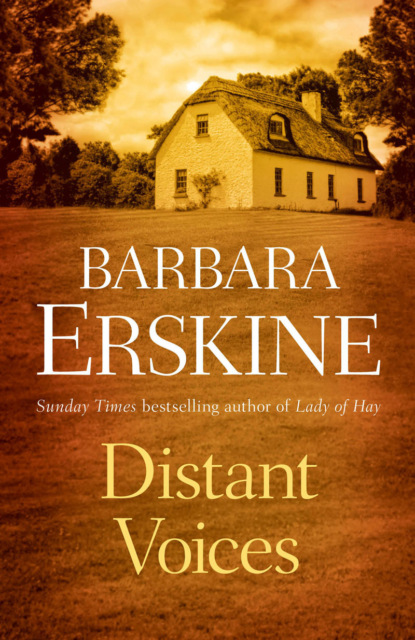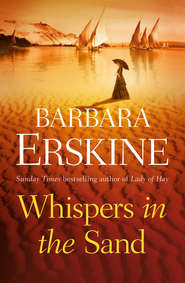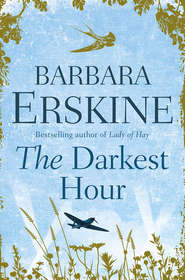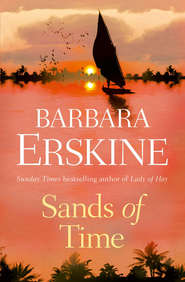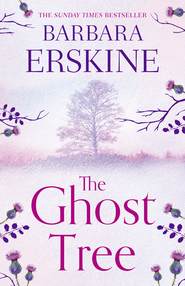По всем вопросам обращайтесь на: info@litportal.ru
(©) 2003-2024.
✖
Distant Voices
Автор
Год написания книги
2019
Настройки чтения
Размер шрифта
Высота строк
Поля
The Toy Soldier (#litres_trial_promo)
To Adam a Son (#litres_trial_promo)
Writer (#litres_trial_promo)
The Fate of the Phoenix (#litres_trial_promo)
When the Chestnut Blossoms Fall (#litres_trial_promo)
The Inheritance (#litres_trial_promo)
Dance Little Lady (#litres_trial_promo)
Rosemary and Thyme (#litres_trial_promo)
Flowers for the Teacher (#litres_trial_promo)
A Family Affair (#litres_trial_promo)
Networking (#litres_trial_promo)
Catherine’s Cat (#litres_trial_promo)
Stranger’s Choice (#litres_trial_promo)
Aboard the Moonbeam (#litres_trial_promo)
Choices (#litres_trial_promo)
Two’s Company (#litres_trial_promo)
Keep Reading Barbara Erskine's Novels (#litres_trial_promo)
Keep Reading Sleeper’s Castle (#litres_trial_promo)
About the Author (#litres_trial_promo)
Also by Barbara Erskine (#litres_trial_promo)
About the Publisher (#litres_trial_promo)
Preface (#ucb02431f-148f-514c-8134-1ff71355e2c9)
When my first collection of short stories, Encounters, was published in 1990 I did not expect to be asked to compile a second, so I was enormously pleased to find myself writing some new stories, and making a further selection amongst my old ones, for Distant Voices.
I still very much enjoy writing short stories. For me they are the sorbet between the courses of longer novels. They freshen and stimulate the palate. They indulge the writer’s and the reader’s whim with a quick glimpse into shadow or sunlight. They intrigue, they titillate, they frighten or they amuse.
As in Encounters those stories that are not new have been chosen from more than two decades of writing and are very varied in theme. To select a few for comment or explanation might help to put the collection in context. Three of the stories, for example, A Test of Love, To Adam a Son and Flowers for the Teacher are unsophisticated and sentimental, written in the early seventies for the so-called true-life market, while others like Witchcraft for Today and When the Chestnut Blossoms Fall depict incidents in an older world where romance has grown a little cynical.
There are of course ghost stories – two inspired by my own garden. The core story in Frost came from a sad tale told me about a greenhouse here, thankfully perhaps, now demolished; Rosemary and Thyme is based on an experience which I had myself whilst weeding in my herb garden one morning in early spring.
Catherine’s Cat has laid to rest (or perhaps not?) a terror which haunted me for a while as a child and made bedtime a torment for many months – the suitcase on the wardrobe. The Duck Shoot Man was based on an incident which happened to my mother and my grandmother and myself when we paused on a journey to Edinburgh and spent the night on Lindisfarne.
Dance Little Lady (purely imagination, this one!) was written in the brash eighties; The Toy Soldier (inspired by a toy we found in our cottage) in the more thoughtful nineties, a time of redundancy and re-evaluation.
There are many more, about different times and different places, depicting different moods and both the strange and the mundane.
Three of the stories are much longer than the others. Dance Little Lady, A Family Affair and Watch the Wall are almost novellas – two mini thrillers and one a historical romance – something to get your teeth into.
Whatever the length and whatever the subject, I hope you enjoy reading them as much as I enjoyed writing them.
Distant Voices (#ucb02431f-148f-514c-8134-1ff71355e2c9)
The lock was stiff and the door swollen. It was several seconds before Jan could force it open and peer at last from the bright sunlight of the porch into the darkness of the house.
As she had climbed out of the car, which was parked on the overgrown gravel of the drive, and looked up at the grey stone façade, she had felt a strange nervousness.
‘Go and have a look round, my dear. Take as long as you like.’ David Seymour had pressed the large iron key into her hand the day before, when she had met him for the first time. ‘I want you to get a feel of how it was.’ He smiled at her, his gentle face dissolving into a network of deep wrinkles, contradicting his initial wariness. ‘Then we’ll talk. Later.’
His grandson, Simon, had been with him. ‘Simon’s an architect. Clever chap.’ The old man had introduced him fondly. The young man was tall and fair with his grandfather’s piercing eyes. Where the older man had the look of a buzzard, hunched, predatory, the younger version was an eagle, right down to the aquiline nose. He had held out his hand to Jan, but his appraisal of her was anything but friendly. Clever he may be, she decided instantly, but also hostile, defensive, and summoned, she suspected, to guard his grandfather’s privacy.
Of all the people there on that fatal night fifty years ago, David Seymour had been the hardest to approach. And without him she would get nowhere. He had been, after all, the husband.
She had looked forward so much to this part of her research. Interviewing the people concerned; comparing their memories; putting the pieces of the jigsaw together. But it was harder than she had imagined. Some of the people there had suppressed what had happened for over fifty years. The memories were painful, even after so long. To have an inquisitive journalist raking over the past was the last thing many of them wanted.
She took a step into the darkness of the house and paused. It smelled damp and musty. The floors were dusty and cobwebs hung festooned across the landing window. She peered along the corridor towards the staircase which swept uncarpeted up towards the light and then round and out of sight.
That must have been where she fell.
Behind her the door creaked. A wind was getting up. She could hear the rustling of the leaves on the oaks which grew on either side of the long driveway and she shivered, half wishing now that she had brought someone with her. ‘This is silly.’ The sound of her voice in the intense silence was an intrusion, but a necessary one. She reached into her soft leather shoulder bag and brought out her micro cassette recorder.
‘Monday the fourth,’ she said firmly, holding the machine close to her mouth. ‘I have just arrived at The Laurels. I am standing in the front hall. The house is empty and has obviously been closed for a long time. No one lives here now and there is, as far as I can see, no furniture or anything here.’
She moved to a door on her left and put her hand out to push it open. The room inside was empty; pale light filtered through round the edges of the shutters, diffused green by the ivy which clung to the outside wall. The parquet floor was scuffed and criss-crossed with old, long-dried muddy footprints.
‘This must have been the drawing room. It’s large. Beautiful. Ceiling mouldings; candelabra, lovely carved mantelpiece,’ she murmured into the machine in her hand. She sounded, she thought with sudden wry amusement, like a house agent preparing particulars for the sale of an especially desirable property.
The silence was intense. She turned off her little machine and walked slowly around the room, trying to feel the atmosphere. Had they all been in here, talking, drinking, smoking, when it had happened? Dinner was over, they were all agreed on that. And the ladies had withdrawn. But what had happened after that? John Milton said they had all gathered in the drawing room and that someone had agreed to sing. Sarah Courtney said the men were sitting over their port whilst the ladies were still upstairs, powdering their noses. Stella had finished and had gone on down alone …
Walking back to the foot of the stairs, Jan peered up. ‘The staircase is shallow, graceful, curved elegantly around the wall,’ she murmured into her machine. The banister, polished and smooth, was almost warm beneath the light touch of her fingers. ‘Stella Seymour’s body was found crumpled at the bottom by the other guests who ran from the dining room, and presumably from the bedroom, when they heard her scream. At the time her death was widely thought to be suicide. It was only four years later, after the war had ended, at the instigation of the man who claimed to have been her lover, that the first accusation of murder was heard.’
Slowly Jan began to climb. Half-way up she stopped suddenly. She could hear something. The intense silence of the house had gone and instead, she realised, she could hear a gentle murmur of conversation coming from somewhere quite near her. She was almost at the bend in the staircase. Frozen with embarrassment she looked up and then back. David Seymour had promised her the house was empty. She could feel her heart beating fast. This was ridiculous. She had permission to be here.
Squatters? Was that it? Could there be squatters in the house? Uncertain what to do, she clutched her tape recorder more tightly as she tiptoed on up the stairs and peered along the upper landing. Several doors stood open up there; all the rooms were empty of furniture.
The sound of voices was louder now. She could hear the occasional chink of glass, of cutlery on china. It sounded as if a dinner party were in progress. Flattening herself against the wall she squinted back down the stairs where she could just see the door opposite the drawing room. It was closed. Why hadn’t she looked in there? Had she not noticed it in her anxiety to see the staircase? Whatever the reason, she thanked God she had not gone barging in, for that seemed to be where the noise was coming from. Get out. That was what she must do. Get out now, without anyone seeing her.
Taking a deep breath she crept back down the stairs, intensely aware that this was where Stella Seymour had died.





